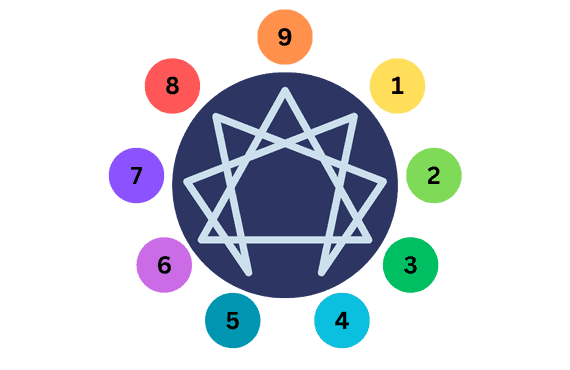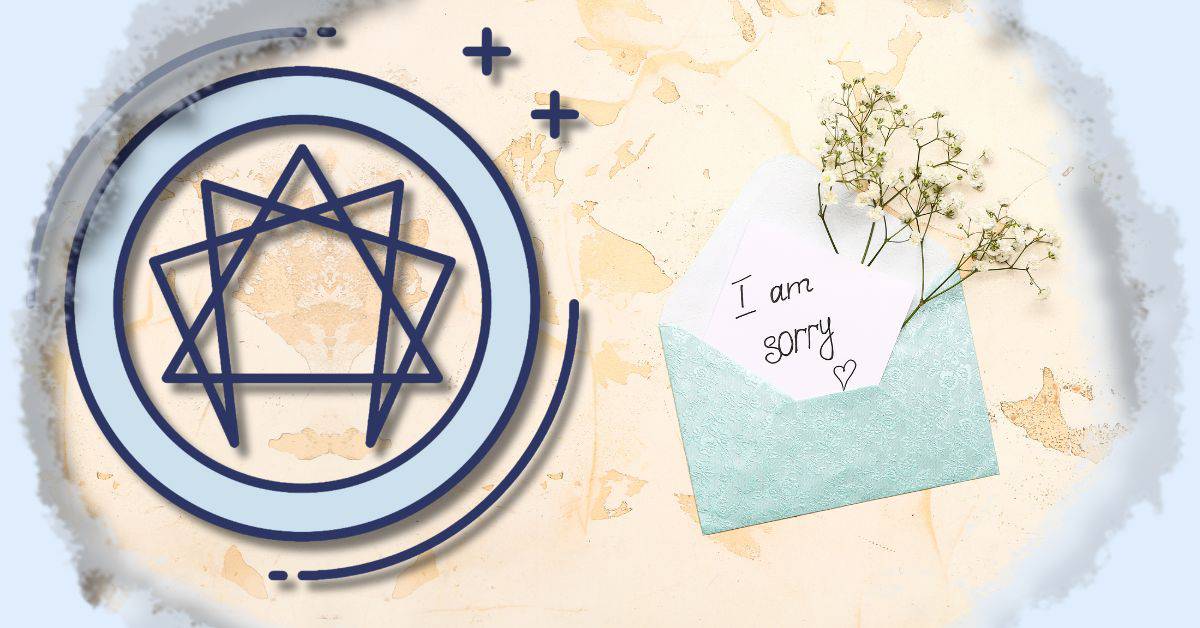Life is a collage of relationships, some as complicated and surreal as a Salvador Dalí painting. And, like any artwork that’s a labor of love, relationships require constant care, attention, and yes—apologies.
But how we say “I’m sorry” can differ wildly, especially when it comes to our core personality traits. That’s where the Enneagram enters the collage—it’s a tool that categorizes personalities into nine types, providing interesting eye-openers into our behaviors.
These Enneagram types are not just labels; they offer an in-depth insight into a person’s main motivations, fears, and wants. The system also explores the interconnections between the types and how one can develop or fall apart under stress or during growth.
Here’s a quick rundown of the nine enneagram types:
- Type 1: The Reformer – Motivated by the need to be good and ethical.
- Type 2: The Helper – Driven by the desire to be loved and needed.
- Type 3: The Achiever – Focused on success and external validation.
- Type 4: The Individualist – Seeks to be unique and experience deep emotions.
- Type 5: The Investigator – Desires knowledge and is often introverted.
- Type 6: The Loyalist – Values security and is often skeptical.
- Type 7: The Enthusiast – Seeks pleasure and avoids pain.
- Type 8: The Challenger – Desires control and challenges authority.
- Type 9: The Peacemaker – Seeks internal and external peace.

While everyone can exhibit traits from multiple Enneagram types, one classification usually dominates. Many people feel that understanding their Enneagram type can be a powerful tool for personal growth, helping to explain why they react a certain way or struggle with certain issues. It can also be an invaluable resource for improving romantic relationships and provide a cheat sheet of sorts for understanding others.
Which leads us to the main point—how does each Enneagram type say, “I’m sorry” when it comes to relationships? It differs for each type, so let’s find out how they make amends and each type’s unique styles of their mea culpas.

Type 1: The Perfectionist
For Type 1s, apologizing is almost an admission of imperfection, and they do not like that at all. These conscientious folks first have to overcome an internal struggle before even contemplating extending an apology. When they do finally apologize, expect it to be thought-out, clear, and often followed by immediate corrective action, demonstrating that they won’t make that oopsie again.
Unique Apology Style: Apologies from a Type 1 often come with a detailed plan for how they’ll avoid making the same mistake.

Type 2: The Helper
Type 2s are the empaths of the world, and they’ll literally sense the need for an apology even before you even know you’re upset. Their apologies often involve some form of nurturing, like a caring message or a gift as a peace offering—they know when they’ve messed up.
Unique Apology Style: Be prepared for a sweet treat or homemade cupcakes alongside that heartfelt apology. The act of giving is a natural part of their guilt.

Type 3: The Achiever
Focused on external validation, Type 3s might struggle with apologies because they equate them with failure. However, when they do apologize, they go big—organizing a big gesture to make up for the error of their ways.
Unique Style: A Type 3 may just whisk you away on a surprise date night as a way of saying, “I’m sorry, please forgive me.”

Type 4: The Individualist
The romantics, aka Type 4s, have a knack for transforming their apologies into poetic expressions. However, they might over-dramatize the issue to get that emotional depth they crave. In other words, they will do too much when less would suffice!
Unique Apology Style: Expect an eloquent letter or a personalized gift that symbolizes their true regret.

Type 5: The Investigator
Type 5s apologize in a unique way; they first analyze what went wrong in a near-clinical fashion. Their apologies often take time but when they come, they are incredibly precise.
Unique Apology Style: Don’t be surprised if a Type 5 offers a well-researched explanation, complete with a PowerPoint presentation, on why they’re sorry and how they plan to fix it.

Type 6: The Loyalist
Type 6s are known for their loyalty, but this doesn’t mean they’re quick apologizers. Often concerned with their ego’s sense of security, they might take time to gauge the risk of admitting a flub. Once they do, their apologies are most often honest and sincere.
Unique Apology Style: Trust is critical for Type 6s, so they may ask for a formal sit-down talk to make sure their apology lands and the other party knows they mean it.

Type 7: The Enthusiast
Bubbling with enthusiasm, Type 7s can be hit-or-miss when it comes to apologies. On one hand, they’re quick to say sorry just to move past the issue; on the other, their avoidance of confrontation can make their apologies feel a little insincere.
Unique Apology Style: A Type 7 might propose an exciting adventure to “make up for it,”—which sounds fun but might miss the mark of just giving someone a sincere apology.

Type 8: The Challenger
For the straightforward Type 8s, apologies don’t come easily. These individuals value control over everything else, and admitting to a mistake feels like letting go of it. When they do apologize, it’s direct, and although they may mean it, they also want closure so the issue disappears.
Unique Style: They may offer a firm handshake or a pat on the back after the apology as a way to physically mark the end of the conflict—like closing a business deal.

Type 9: The Peacemaker
Finally, we have Type 9s—the peacemakers who often apologize just to restore harmony, even when they’re not in the wrong. Their apologies are usually gentle, with the goal of mending fences quickly and without unnecessary drama.
Unique Apology Style: Their apologies might come disguised as a casual conversation, subtly diffusing tension without making a big deal about it.
Takeaways
So, what have we learned? Well, like our DNA (except for identical twins), apologies and how we deliver them are unique to each of us. They’re a porthole into how we see the world, manage conflicts, and look after and care for our relationships. So the next time you find yourself at a moment of truth, consider not just what you say but how you say it.
After all, understanding our Enneagram type can make that sometimes hard to say “I’m sorry” a cathartic moment—one that bolsters our relationships and helps us better understand ourselves. And isn’t that worth apologizing for?




